It’s no secret that bias against folks with larger bodies is common in our mainstream media, in many of the family systems in the United States, as well as in our healthcare system. As body positivity is becoming more commonly acceptable it can be challenging to find care and support that also reflects the intentionality of highlighting the goodness of every body. These are just three ways you can find out if the therapist you are working with is supportive of all bodies, fat bodies included.
Looking at Their Language Around Weight
You can tell a lot about a person by the words they know, use, and feel comfortable exploring. A therapist might use a variety of words passively when bodies or food come up, but it might be helpful to ask directly about their knowledge of or thoughts around different topics relating to anti-fat bias. A therapist that is size inclusive will likely feel quite comfortable with following your lead if using the word ‘fat’ as a morally-neutral way to describe your body is common for you. ‘Fat’ as a morally neutral concept is rather central to the body positivity/weight neutral movement so a therapist following your lead in this is a good initial indicator.
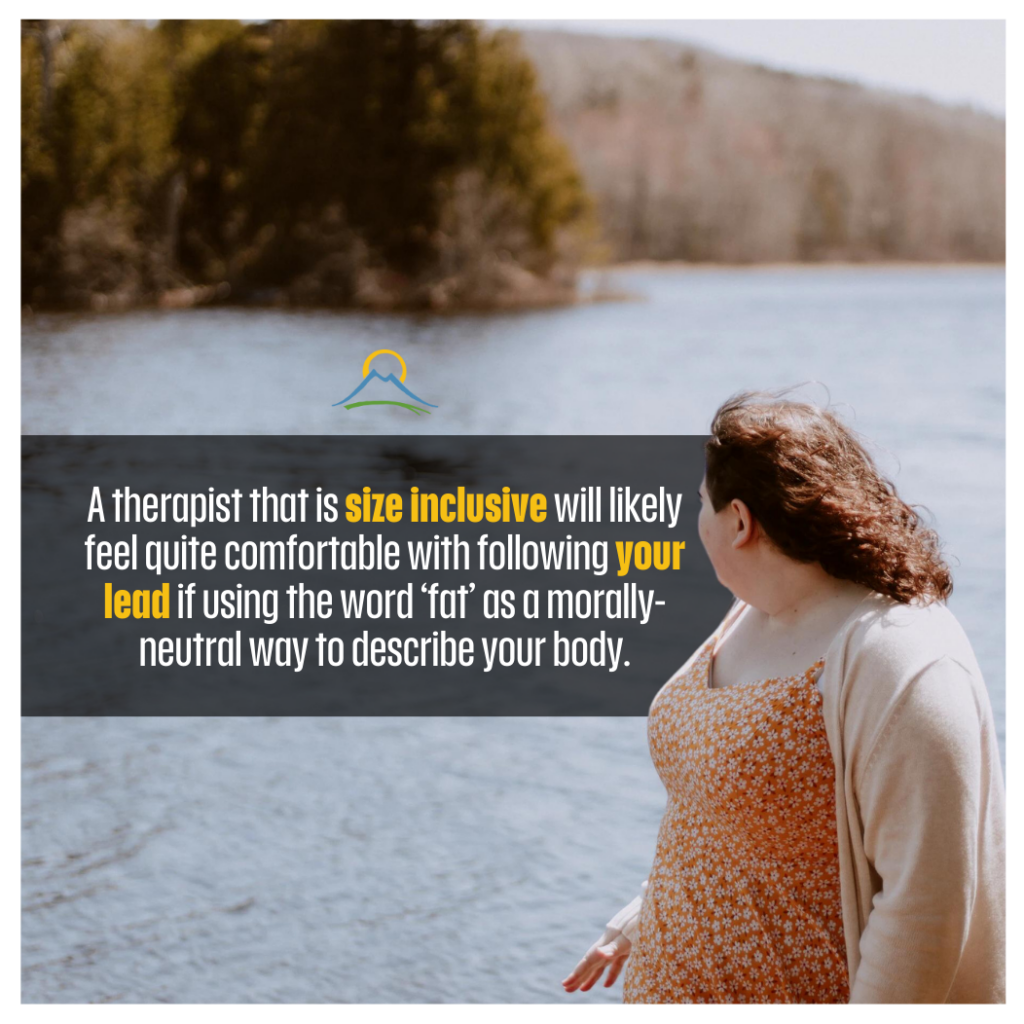
Other topics to ask your therapist about their views on, knowledge of, or comfortability dealing with could be: fatphobia, diet culture, or the BMI (body mass index) metric (or the harm it has done). Size inclusive therapists will be familiar with these topics and will probably be able to articulate their perspective on them, but it is helpful to also note that some therapists might be newer to these concepts, but open and excited to explore them with you in supportive ways.
Looking at Their Approach
Many mental health clinicians list their therapeutic approaches on their website or within the pages of their informed consent form, but often these words mean no more than psychology ‘mumbo jumbo’ to the folks seeking mental health care. You can look for language in their listed ‘approach’ around bodies which might share insight, but one that can point in a good direction in body positivity work is if a therapist lists themselves as HAES-informed (Health at Every Size) or HAES certified.
Additional approaches that would be helpful for anti-fat bias work might be trauma-informed, culturally sensitive, intuitive eating, or a systems approach. Approaches to be mindful of that might have negative repercussions in therapy would be approaches that note doing specific work around weight loss. As weight itself often has little impact on health, emphasis on ‘weight work’ might indicate someone is a therapist with views around bodies and weight that don’t align with the body positivity or weight neutrality movements.
If you hear a therapist respond to your distress around symptoms such as depression or anxiety and their first inclination is to discuss weight, food, or exercise often these can be good indicators of a therapist with internalized fatphobia. Listening to the therapist can be very helpful in knowing their perspective.
You Can Trust Your Gut and Body
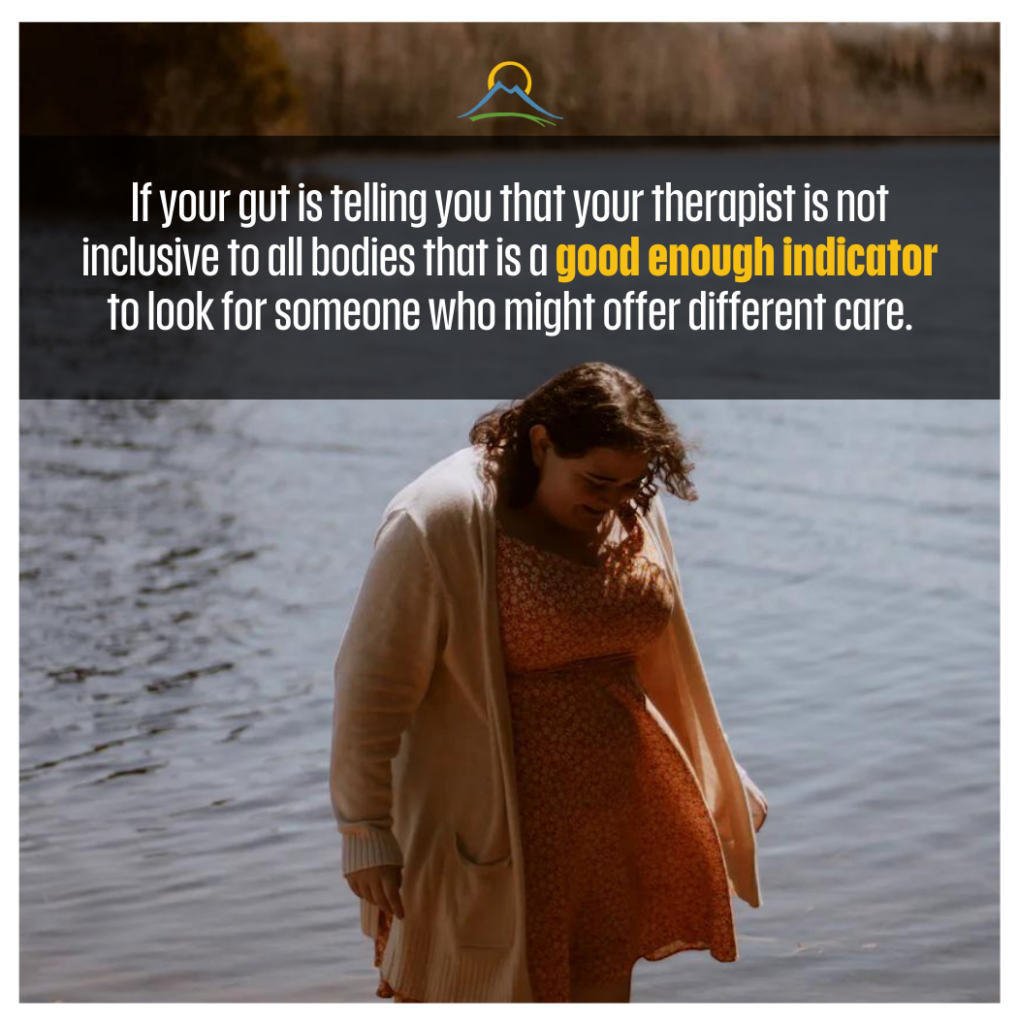
While there are many tangible pieces of information you can gather from a therapist, the very best tool you can trust is your instincts. When sitting with a therapist or doing an informational consultation beforehand, if your gut is telling you that your therapist is not inclusive to all bodies that is a good enough indicator to look for someone who might offer different care.
If there are signs that you’re feeling uneasy about and asking the therapist doesn’t feel like a good or safe option (and you have the means), seeking a different therapist is a great idea. If you’re seeing magazines in their waiting room about elevating thin bodies and weight loss and that sends worry through your body, it’s okay to trust that as an alarm bell. Trust your body, it wants to keep you safe. If trusting your body and your gut isn’t something that you feel comfortable doing just yet, ask a trusted friend or family member to have a collaborative conversation with you about your concerns.
Conclusion:
Every person deserves care that is good and safe for them with their best interest in mind. It is important to note that it is okay to grieve that this care has not always been made possible for people of different sizes, particularly fat folks. Size inclusive care is out there, there is hope for you to find it, and advocating for yourself to get access to this care matters.
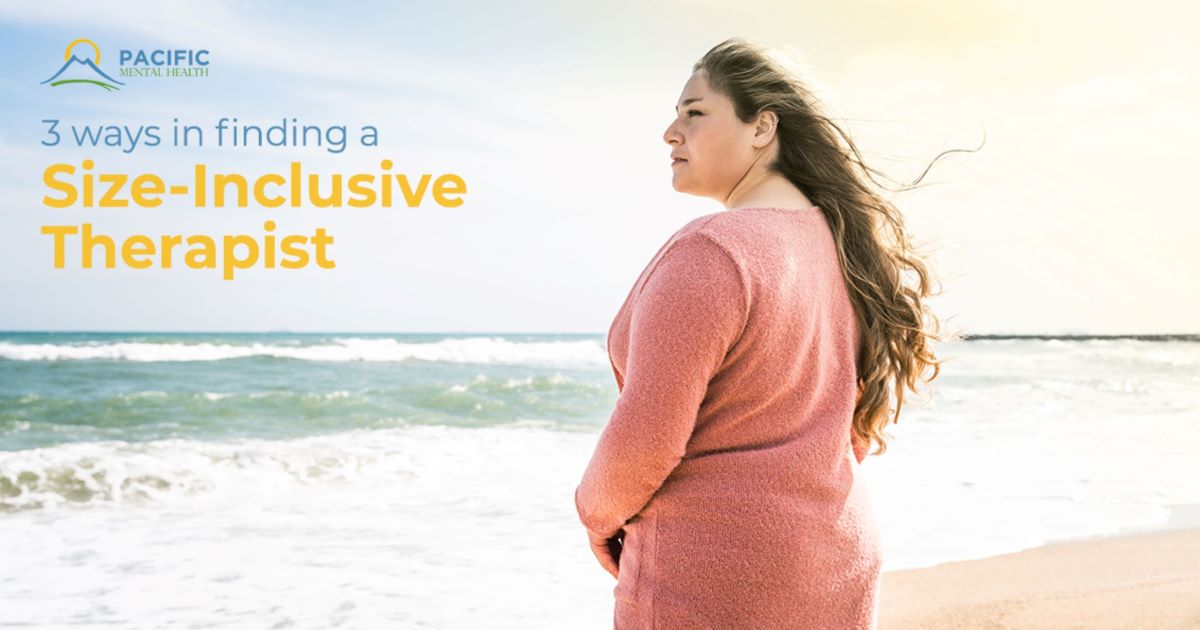
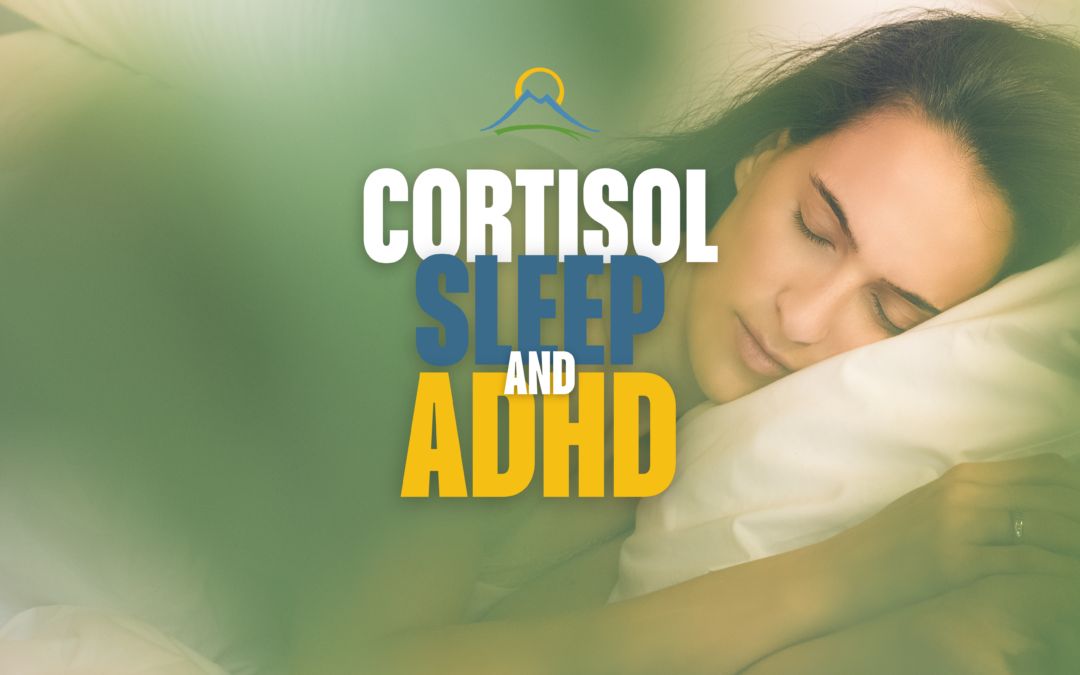
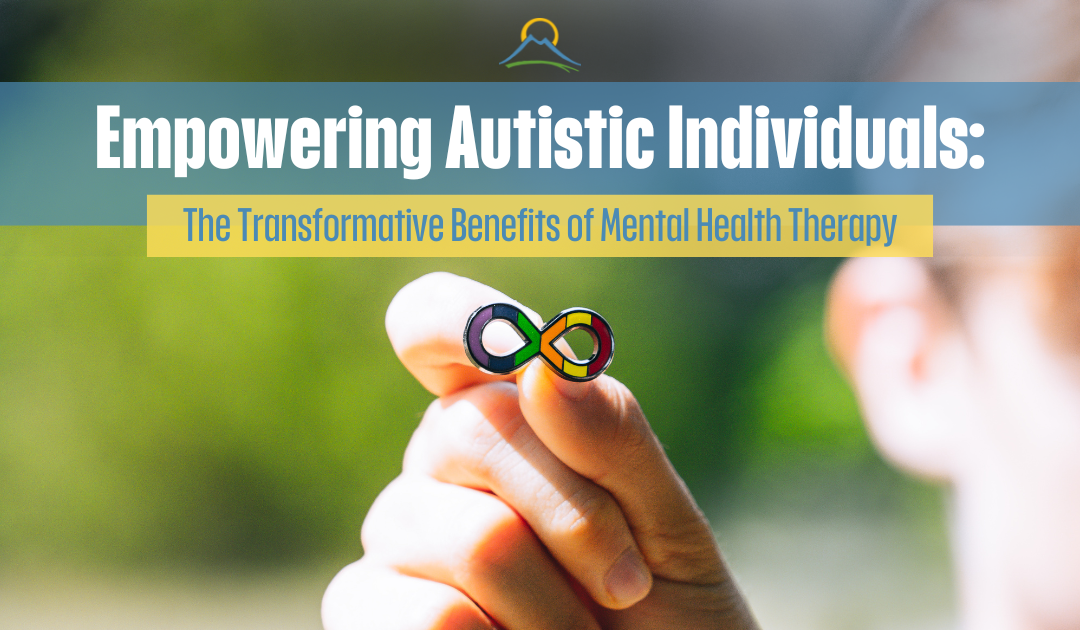


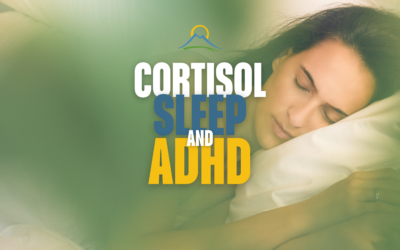


0 Comments